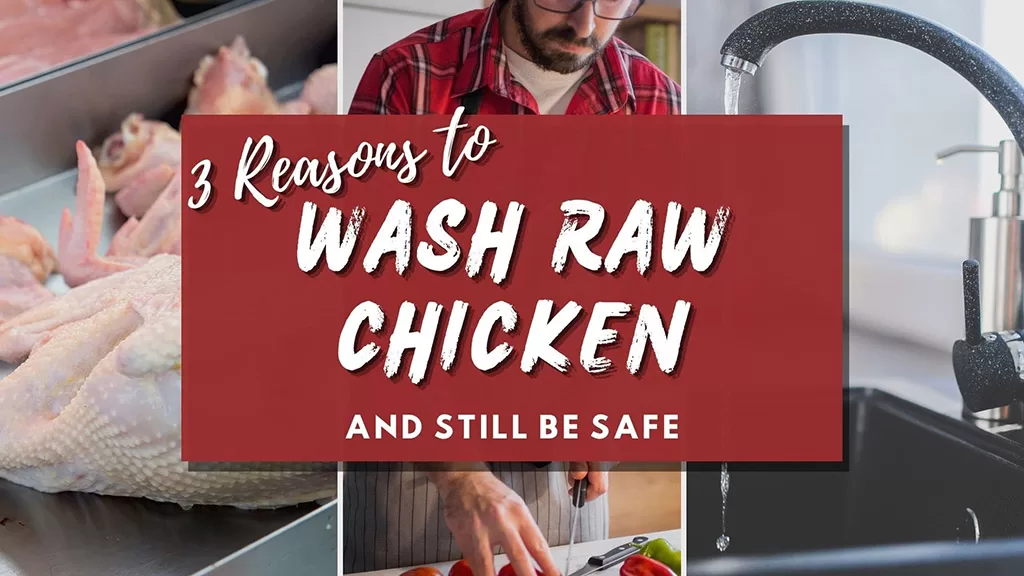Many experts advise against washing raw chicken before cooking it, as this can actually increase your risk of food poisoning. However, there are several instances where it may be necessary to wash your chicken.
In this blog post, we’ll discuss 3 reasons you might need to wash your chicken before cooking it.
3 Reasons to Wash Raw Chicken
There are several reasons you might need to wash your chicken before cooking it. Below, we’ll discuss 3 of the most common reasons.
1. Dropping the chicken on the floor
It can be tricky to handle raw chicken, especially if you’re not used to it. It’s slippery and can easily fall out of your hands.
If you happen to drop your chicken on the floor, you may want to give it a quick wash before cooking it. Just keep in mind the goal is to remove any dirt or debris that may have been transferred to it and not to actually disinfect the chicken.
2. Remove excess seasoning
Unlike beef or lamb, which only need a pinch of salt and pepper, chicken requires a lot of seasoning. This often leads to accidentally adding too much seasoning, which can make your chicken too salty or even inedible.
If you think you’ve added too much seasoning to your chicken, you may want to wash it off with cold water before cooking it. This will help to remove some of the excess seasonings and give you a fresh start to apply the correct amount.
3. Farm-fresh chicken
If you’re lucky enough to have access to farm-fresh chicken, it’s likely to still have some feathers, blood, or other contaminants on it.
While it’s not necessary to wash farm-fresh chicken, you may want to give it a quick rinse to remove any visible contaminants. Just be sure to cook it immediately after rinsing to avoid any cross-contamination.
Conclusion
As you can see, there are several reasons you might need to wash your chicken before cooking it. Just remember, the goal is to remove any contaminants that may be present, not to actually disinfect the chicken. Be sure to disinfect any surface that the chicken comes into contact with to avoid any cross-contamination.
